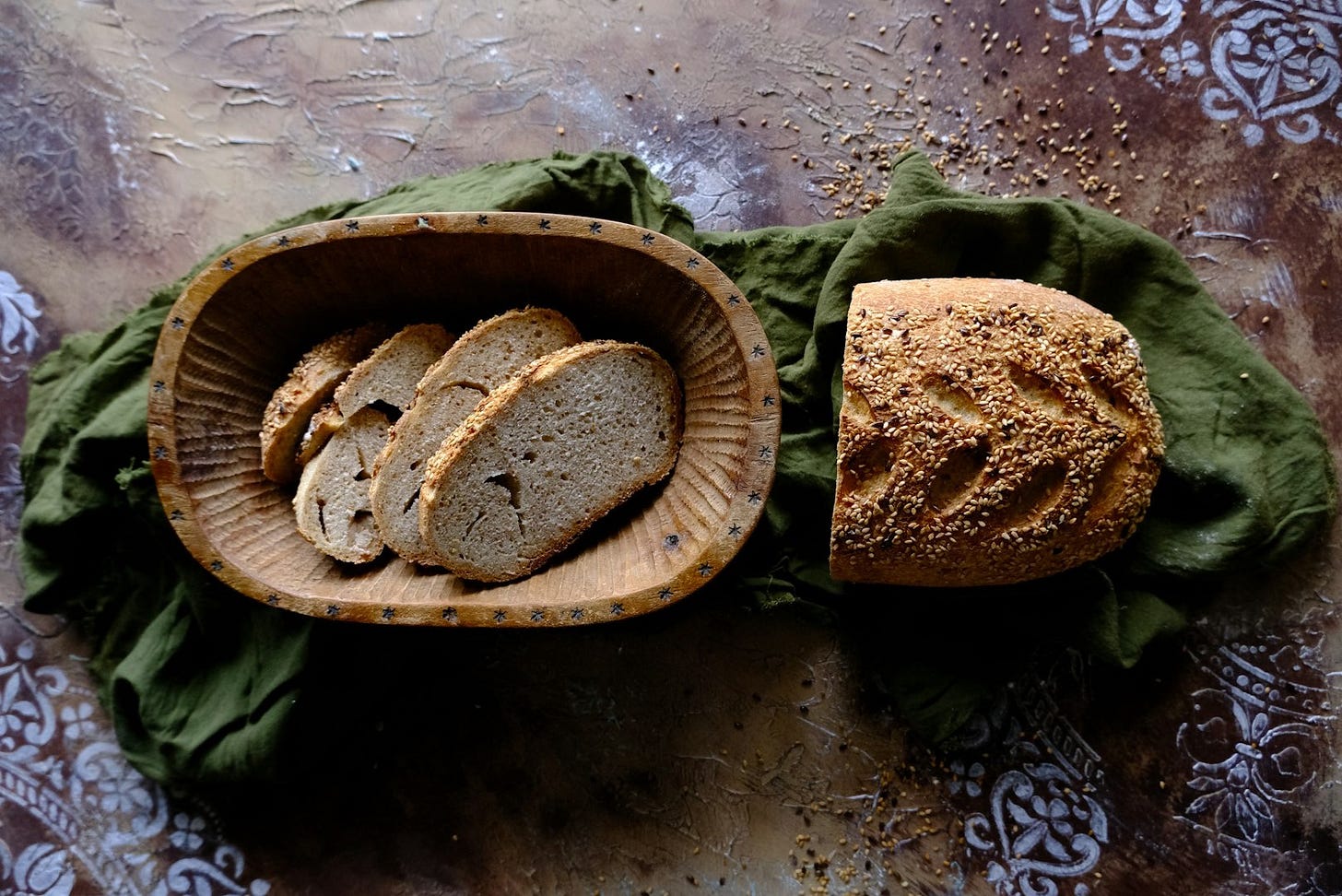
There were five-thousand people, and not enough food. The disciples wanted to dismiss the crowd, but Jesus said, “They do not need to go away. You give them something to eat.” The disciples were dumbfounded, but Jesus asked them to bring what little they had to him—five loaves and two fish. The Gospel of Matthew describes what happened next:
Taking the five loaves and the two fish and looking up to heaven, he gave thanks and broke the loaves. Then he gave them to the disciples, and the disciples gave them to the people. They all ate and were satisfied, and the disciples picked up twelve basketfuls of broken pieces that were left over (Matt. 14:19-22).
When I first moved into a dorm to begin seminary, one of my roommates was from India. Almost every time I saw him, he offered me food. He never asked anything in return. He never pressured me to only try a little of what he had prepared—on the contrary, he often urged me to have seconds. The more I got to know him, the more extraordinary this became, because I learned that he had come from greater poverty than I had ever seen in my life. In time I came to understand that in his poverty he had discovered something about God’s abundance that I in my middle-class affluence never had the chance to learn.
Another friend of mine once told me that there is always enough food. Even when there isn’t, there is. We should always be prepared to share what little we have, even if we don’t think we have enough, because we know that our Father in heaven provides for our every need. And supposing he doesn’t, it is better for us to starve with our neighbors than to eat our fill alone, because we belong to one another.
Those who share food with others recognize their own value in God’s sight, and the value of those with whom they eat. “Look at the birds of the air; they do not sow or reap or store away in barns, and yet your heavenly Father feeds them. Are you not much more valuable than they?” (Matt 6:26-30). When we are unwilling to share our food it is because we think that we must provide for our own needs and demonstrate ignorance about the love of God. After all, we depend upon God for every need—he always shares his food with us. Practicing generosity gives us opportunity to better acknowledge our dependence on him, rely on him more fully for the benefit of our neighbor, and experience his lovingkindness.
In our world, we are inclined to believe that abundance is the fruit of order and control. Store up treasures for yourself and give to others only when it serves to benefit you in some way. In God’s economy, however, abundance is the fruit of gratitude and sacrifice. Give thanks for what is and share with those who are hungry, and there will be plenty.
In the American church, we tend to demonstrate greater faith in the world’s accounting practices than in the rules that govern God’s economy. We operate by the law of reciprocity. We only allow others to serve us food if we can pay them for their services or else return the favor. We do not invite to our tables those who cannot reciprocate our generosity, and we refuse any service that we cannot pay for. Our individualism leads to many lonely meals and many lonely lives.
The Scriptures teach us, however, that we should deliberately look to serve those who cannot return the favor. In this way, we participate in God’s sacrificial love. Our reward is not necessarily material but the immaterial treasure of knowing God’s compassion, doing good for our neighbor, and enjoying the satisfaction of friendship and community.
God loves to provide food for his children because he loves us. He delights to see us share what we have with one another, because that is consistent with his heart. In fact, he loves our gatherings so much that he will even provide the food himself so that we can meet. We should not be surprised when he shows up himself to such meals, for as Jesus explained, “[W]here two or three gather in my name, there am I with them” (Matt. 18:20). After all, the Gospels are filled with stories demonstrating how much Jesus loves to help host dinner parties.
If we really believe that God has access to everything and that he loves us, why not use what little wealth we have been granted to create opportunities for communion and community? Good hosts are not stingy. They give thanks for what they have and share it with others. These experiences remind us that we belong to one another and to God. Shared meals give us opportunity to taste his love anew and recognize his provision, sometimes in profound ways.





So true and so encouraging!